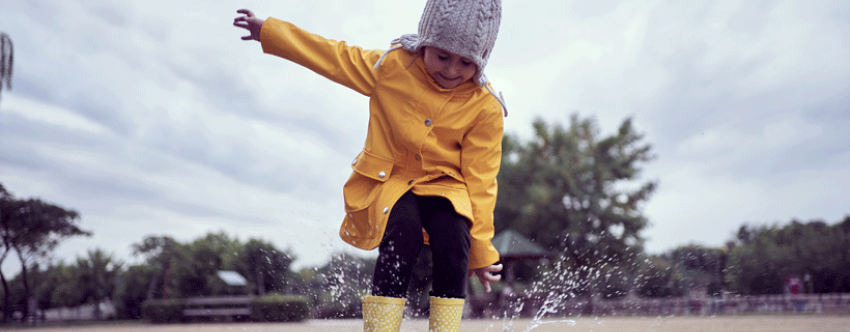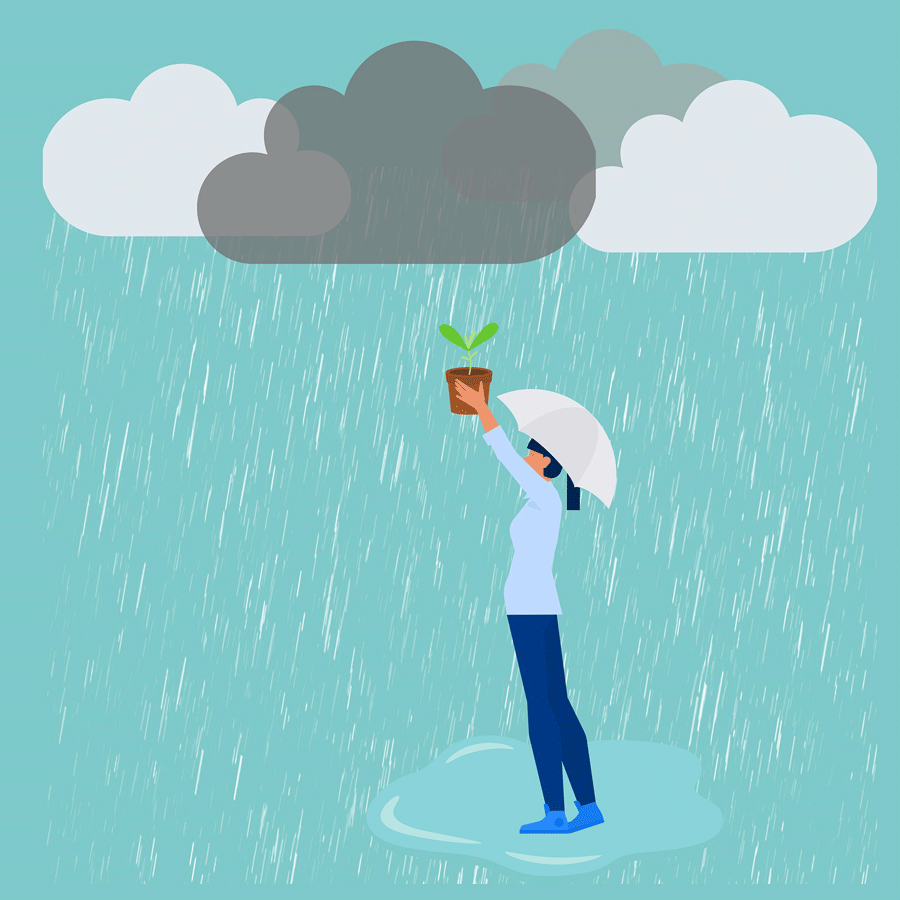News & Views

Forget fair weather: Teach children resilience through their natural environment
How often have you put something off for another day because of the weather? It’s really common in the UK, especially as our weather is so varied – perhaps too wet or cold, or even too hot sometimes.
There is a well-known saying that there is no such thing as bad weather, only inappropriate clothing – though it might be useful to add ‘equipment’ to that, as sometimes we need more than just clothing. Regardless, being prepared for the weather can help us to manage how we perceive it better.
We can’t necessarily change the weather, but we can modify our attitude toward it and be ready with the correct clothing and equipment.
Being prepared and adequately equipped not only helps with the weather but with life in general. This might be wellies and waterproof coats on rainy days or sunhats and suncream on hot days. It could also mean that teaching staff have a kit for being outdoors, with waterproof games and equipment that can be used in wet weather as easily as in dry weather.
As with the weather, we can be better prepared and have the correct equipment to navigate other life challenges too. Developing resilience and a capacity to manage the ups and downs of life are skills that all children deserve. And if we can offer children the chance to ‘rehearse’ these skills in all types of weather, then perhaps we equip them to deal with life in general.
![]()
Here are some ways to help children develop their resilience through the natural world.
Create a charter
As a school, consider creating (and sticking to) a charter about being outside. Some ideas that you might like to include in your charter are:
- We agree to make the most of the outdoors, whatever the weather. That means we talk about the outdoors positively and recognise how privileged we are to be able to go outdoors and learn. We dress appropriately for the weather.
- We recognise that we work better when collaborating with others who know more or differently from us; we always share with and learn from each other.
- We recognise the value of being outdoors to children’s development and their skills, particularly their resilience and we embed it in our timetables, never as a reward or sanction.
Listen to people who have an aversion to certain weather conditions and be compassionate about their needs or preferences. They might need support other than being handed a pair of wellies.
Top tips for teachers
As a teacher, model what you would like to develop in children. If you would like to promote better resilience skills in them, show them how they could try. Offer them the language of being resilient and demonstrate how they can use it.
Share with them when you struggle (as appropriate) and how you manage difficult feelings successfully. You might not enjoy being outside in the winter but you recognise that it has some benefits such as:
- fresh air
- a chance to be away from screens
- an opportunity to decompress a little.
Share with the children how people can feel better by being outside in nature even if it is cold, damp or dreary. It doesn’t have to be bright sunshine for humans to feel the benefits of the outdoors. Acknowledge that many animals hibernate in the winter – and that this might feel like something humans want to do too. Recognise that not everyone enjoys the winter but we know that brighter days are coming.

Be aware that your reactions to the weather will rub off on the children, so consider how you could reframe some comments. This is not about saying that teachers can’t show a preference for a particular type of weather. Rather, it is about reminding children that their thoughts about the weather and being outside can be very simply swayed by being prepared.
- If you, as a teacher, say that you don’t like the rain, explain that you can feel better about rain by having a decent coat, umbrella, hat or whatever works for you.
- You might share with children how rain helps nature grow, just as the sunshine does, so both are essential for growth.
- Perhaps you don’t like feeling cold outside, so share with children how you can move your body around more to get warmer and show them how they can do this too (wearing appropriate clothing, of course).
- If you don’t like being outside when it’s hot, show children how you can cool down in the shade, lie quietly in the grass or dip your feet into a small amount of cold water to cool your body down.
- Share with children what animals do to cool themselves and how we, as humans, can emulate some of these methods.
Encourage children to own their responses
Children may have been surrounded by adults who make their thoughts about the weather very clear and so they pick up on this and repeat it, perhaps without considering their own feelings. It can feel difficult to try to offer an alternative way of thinking to children but do persevere. It will take time to give children the chance to try out a new way of thinking.
Beware of toxic positivity though. This is the idea that resilience is created in people by encouraging them to always be upbeat and to look on the bright side. It is counterintuitive for many children who understand implicitly that their concerns are real and that being told to smile when they don’t feel like it doesn’t work. Being negative is not necessarily something to be ignored – there may be a deeper story to consider. If a child genuinely doesn’t like going outside for a reason (perhaps it is a hot and sunny day, they don’t have sunscreen on and will burn in the sunshine), listening to them and putting in alternative measures will work better for everyone as a result.
Whatever you do, help children to understand that outside influences do not necessarily have to have such a strong effect on them and their behaviour.
Instead, adults can help children to notice the benefits of all types of weather; to be prepared for them and to have the necessary clothing or equipment. Teach them to know that they can thrive in all types of weather and that there is more to life than constant sunshine – in both a literal and metaphorical sense.
Promote positive approaches to outdoor learning with the Outdoor Learning Award which offers a range of extracurricular outdoor learning opportunities for your pupils.
About the author

Joanna Feast is an education consultant specialising in PSHE education across the age ranges. She is also the founder of Clean Well-Being and author of the Outdoor Learning Award.